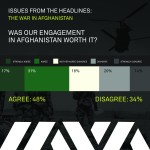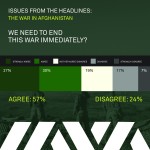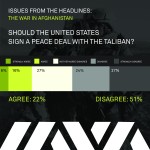- Anti-government protesters report being targeted by snipers and live fire
- Authorities harassing and intimidating peaceful activists and journalists
- Death toll passes 150as demonstrations enter second week
The Iraqi security forces’ escalating use of excessive and deadly
force against anti-government protesters must be properly investigated,
Amnesty International said after interviewing eight activists who
witnessed protesters being killed by sniper fire.
The Iraqi authorities’ brazen use of excessive and lethal force
against protesters in Baghdad and elsewhere must not be allowed to be
swept under the rug. The Iraqis have paid too high a price simply to be
able to exercise their right to freedom of peaceful assembly
Amnesty International spoke to eight activists, protesters and
journalists from Baghdad, Najaf, and Diwaniya, all of whom described
security forces using excessive force, including live ammunition, to
disperse protesters. The organization further verified and geolocated
audiovisual material depicting a pattern of shootings that are
consistent with sniper fire, and the specific details of these attacks
were corroborated with witness testimony from Baghdad. Meanwhile, the
organization gathered new testimonies describing the Iraqi authorities’
sinister campaign of harassment, intimidation and arrests of peaceful
activists, journalists and protesters.
“The Iraqi authorities’ brazen use of excessive and lethal force
against protesters in Baghdad and elsewhere must not be allowed to be
swept under the rug. The Iraqis have paid too high a price simply to be
able to exercise their right to freedom of peaceful assembly,” said Lynn
Maalouf, Amnesty International’s Middle East Research Director.
“Authorities must immediately and without any delay act on their
promise to set up an investigation. This promise is already ringing
hollow as protesters continue to be harassed and threatened into
silence, in addition to being hunted down and killed in the streets.
They must commit to holding those found to be responsible for these
crimes.”
Shoot to kill
One protester from Baghdad described how a suspected sniper targeted a protester and then fired at others who tried to help him.
“There was a person who was hit by the sniper. Five people ran
towards him to help and they were all shot one after the other. There
were bodies all along the street. They all had shots in the head and
chest,” he said.
Footage verified by Amnesty International was consistent with the
location and witness’ description of the incident. However, the
organization has not been able to verify the identity or affiliation of
the snipers.
On 6 October, the Iraqi authorities blamed “anonymous snipers” for
the killing of protesters, but witnesses said the sniper fire was coming
from behind the line of security forces. And in none of the reported
cases of sniper fire are security forces known to have protected
protesters, nor have police intervened and arrested anyone responsible
for firing at demonstrations. It is the government’s responsibility to
protect those peacefully exercising their right to freedom of assembly.
Authorities must immediately and without any delay act on their promise to set up an investigation.
One protester told Amnesty International: “How can the government say
they do not know who the sniper is? And if the forces did not know,
once they realized that why did they not warn the protesters? The forces
were focused on making sure no one helped the injured.”
In one area of Baghdad, protesters told Amnesty International that
security forces had prevented injured protesters from reaching nearby
hospitals, and arrested those who did make it to the hospital on the
night of Wednesday 2 October.
Witnesses from the capital also described what they believed to be
sniper fire at the protests between Thursday 3 October and Sunday 6
October. They also reported armed men shooting at protesters and driving
towards them in an apparent attempt to run them over. Witnesses in
Baghdad also described security forces surrounding protesters in the
city’s Za’faraniya district and opening continuous live fire on them.
Campaign of intimidation
Journalists and activists who spoke to Amnesty International have
also reported receiving threatening phone calls and indirect warnings
from security forces telling them to “keep silent” and that their names
have been added to “a list” compiled by intelligence services for
“supporting” protesters.
Journalists have been accused of reporting
false information regarding the use of excessive force by security
forces.
One protester from Baghdad said: “Anybody who has used his phone to
make a call, take or spread photos of violations during the protests is
in danger.”
Witnesses in Baghdad, Diwaniya and Najaf said security forces carried
out hundreds of arbitrary arrests of protesters, often chasing them
into side streets amid the chaos of people running away from tear gas
and live ammunition.
Meanwhile, access to the internet and social media was blocked on
Tuesday evening after a temporary lift on Sunday night. Access to the
internet was unblocked briefly on Wednesday but has since remained
restricted, while access to social media platforms remained blocked.
These promises will simply not fly when Iraqis continue to be
threatened into silence, arrested, and killed in the streets. The Iraqi
authorities must respect people’s right to express themselves and to
assemble without fear of repercussions.
Activists told Amnesty International that they were calling for a
change of government because they no longer believe any promises made by
the current government, which they accuse of ignoring years of
protests.
“We have been protesting since 2008 and nothing has changed. Now, we
don’t want political parties to represent or lead us in these protests
because without them we are strong and credible. We have stood by the
government against Daesh [the armed group callilng itself Islamic State]
and when they were liberating areas we supported them. We waited but
what is the excuse now? They promise numbers, jobs, changes and all we
get is the same: corruption and nepotism,” a protester from Bagdad told
Amnesty International.
On 6 October and 9 October, in response to the protests, the Iraqi
government made a number of promises that include building housing
units, social security payments for families in need, and grants to
unemployed citizens, economic support to tackle poverty and well as
compensation for families of those killed during the demonstrations.
“These promises will simply not fly when Iraqis continue to be
threatened into silence, arrested, and killed in the streets. The Iraqi
authorities must respect people’s right to express themselves and to
assemble without fear of repercussions. They must immediately and
unconditionally release all those detained solely for peacefully
exercising their rights to protest and freedom of expression, and commit
to holding to account security forces responsible for intimidation and
excessive use of force, including by bringing to justice those
responsible for unlawful killings and injuries,” said Lynn Maalouf.

























